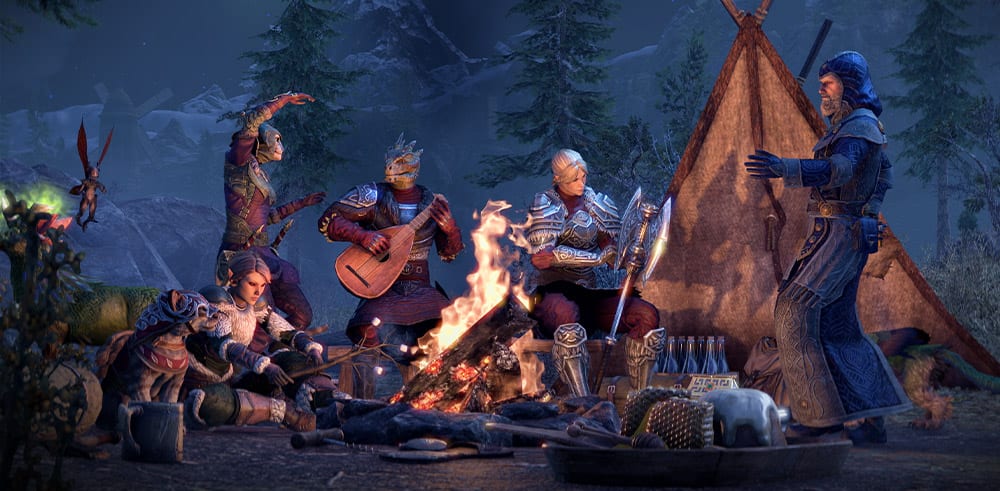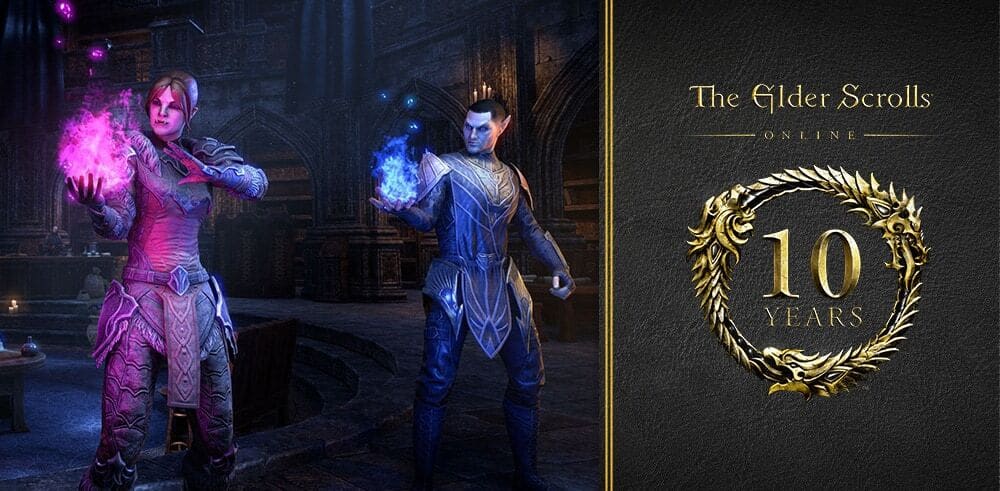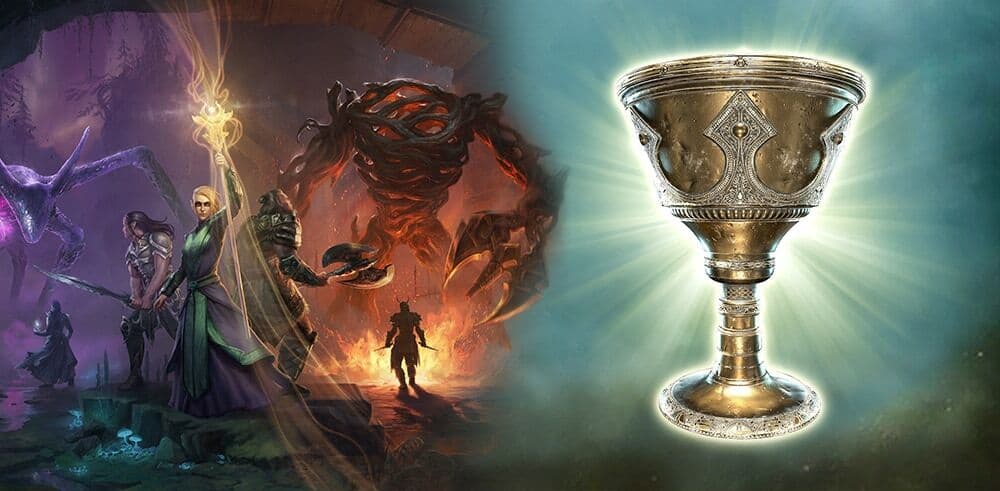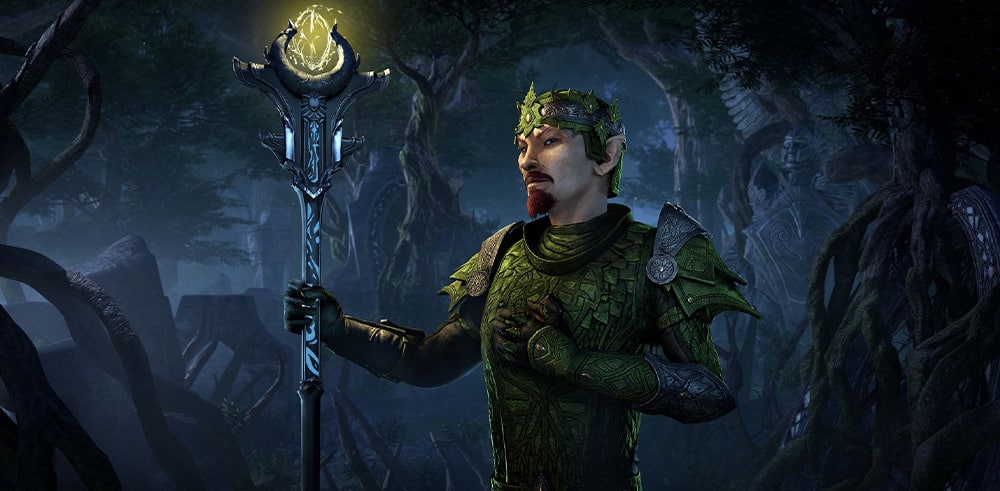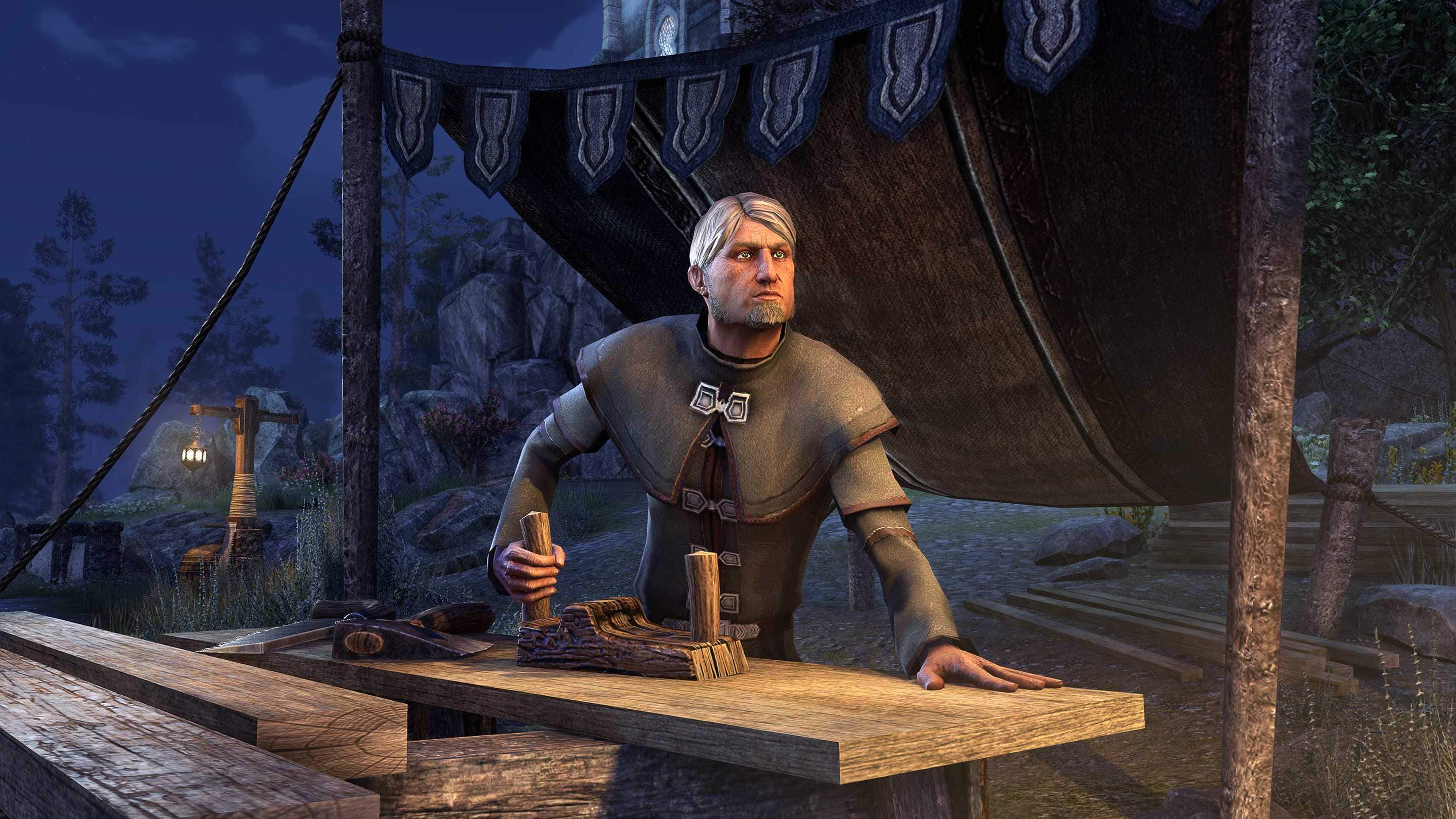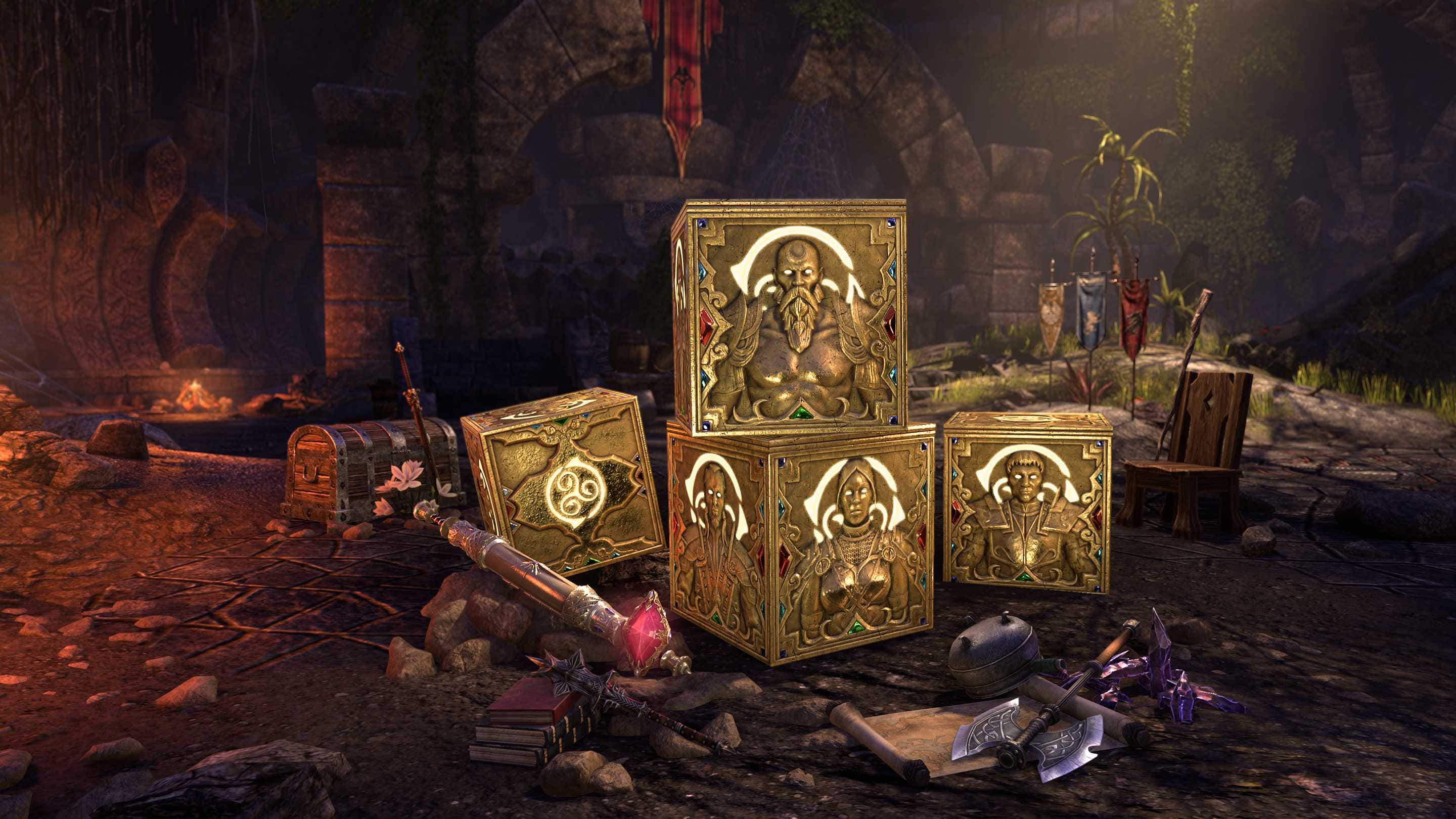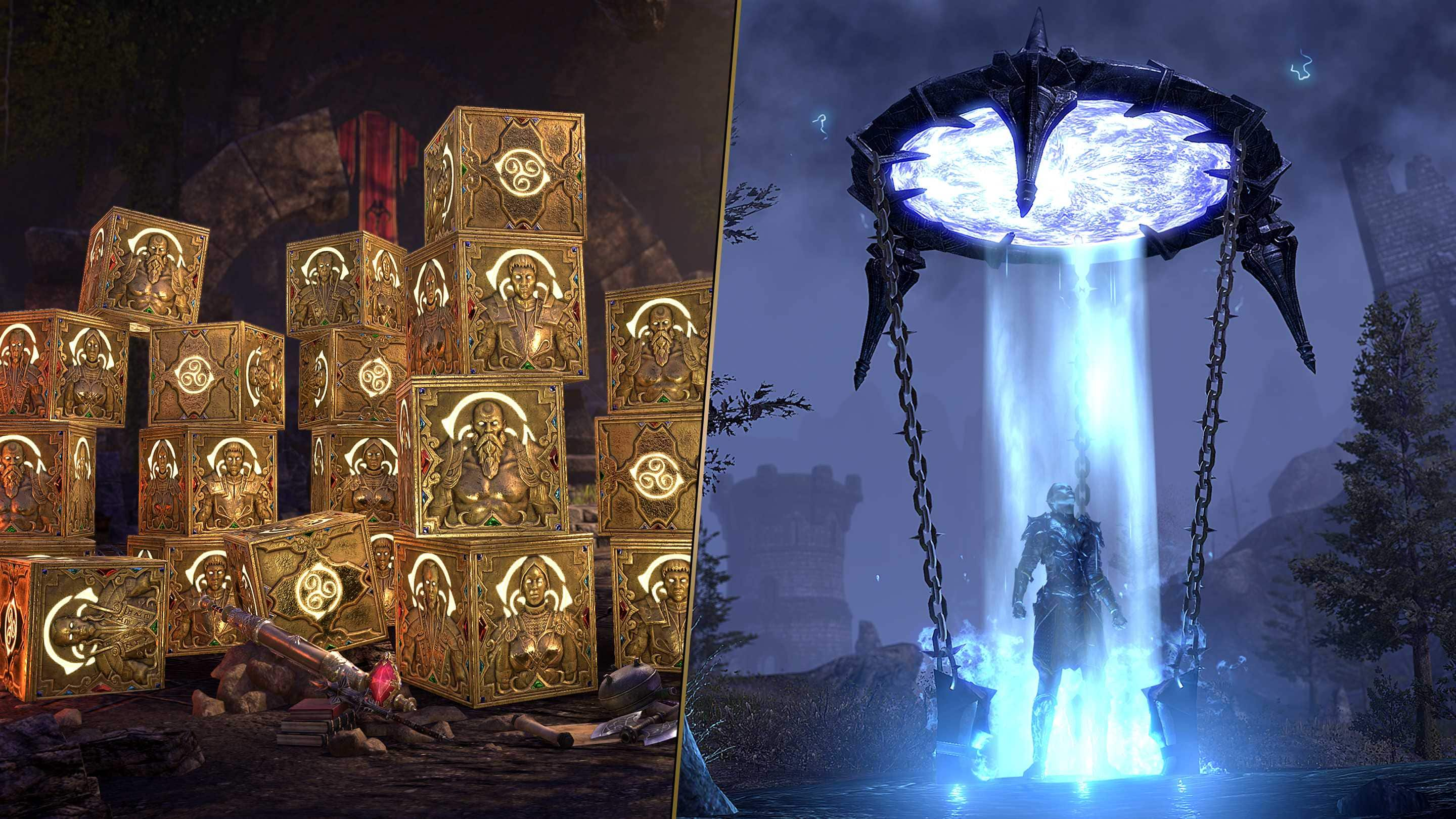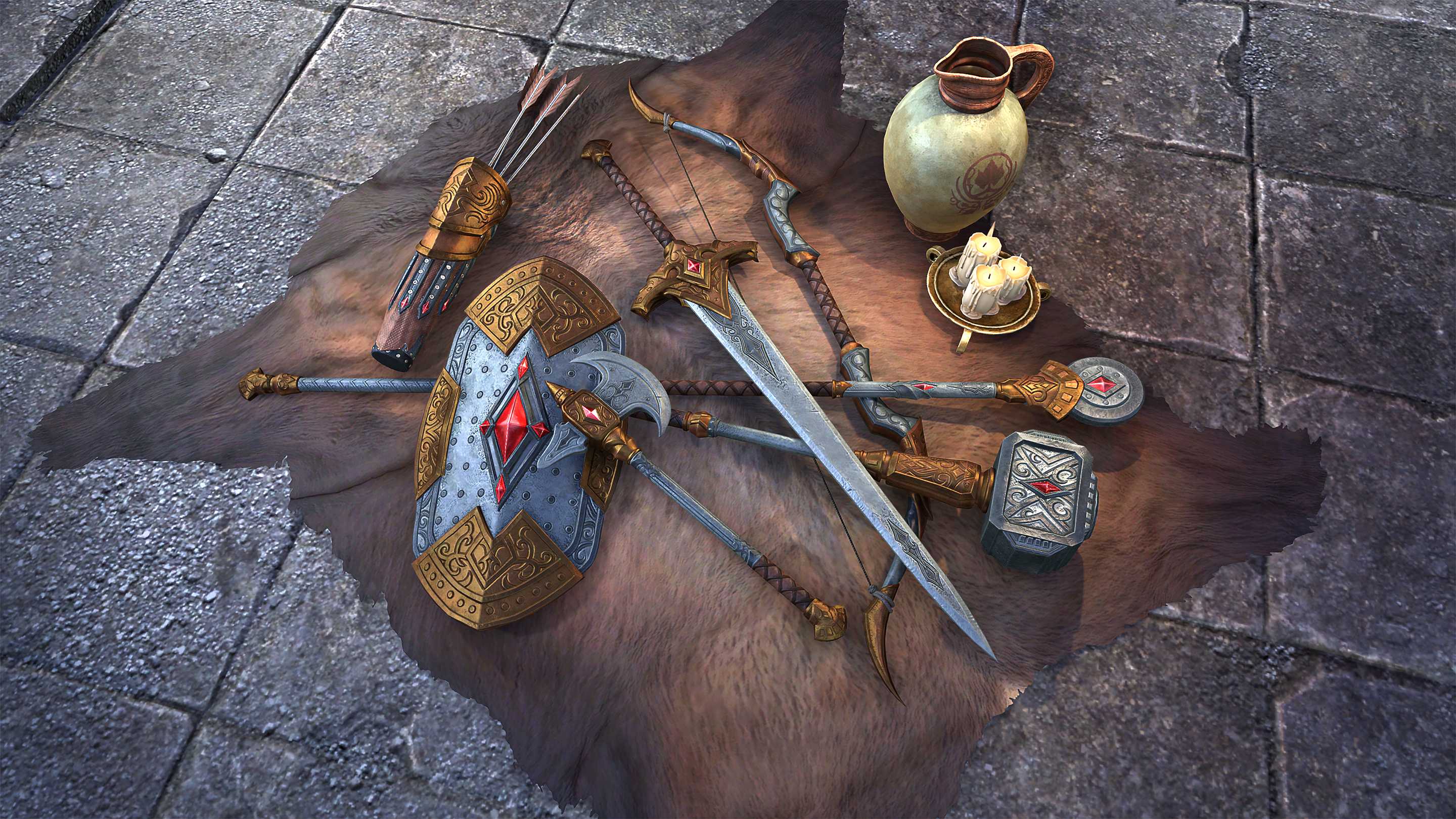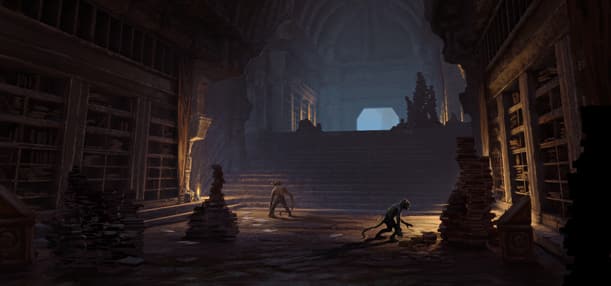
Divayth Fyr, ancient master of the arcane, discusses the nature of Mephala.
Few throughout Tamriel’s history can claim to possess magical aptitude, long life, and knowledge equal to that of Divayth Fyr. He has condescended to share just a bit of his insight and answer some of your questions in today’s article. His time is valuable, so we were honored to relay his words to you.
Next time, Telenger the Artificer will enlighten us on the topic of runestones and enchantment, so send your questions about these or any other lore topics to community@elderscrollsonline.com!
Inexplicable Patron: Mephala
By Divayth Fyr
After a recent discussion with a self-proclaimed “priest and scholar” of the Tribunal Temple, I find myself shamed (as I often am), but not surprised (as I never am) by the gross misunderstandings of the nature of the Daedra that “adopted” our ancestors. It seems that our priests these days are trained in little more than bland recitations and methods for parting pilgrims from their gold, a significant and disappointing departure from their traditional functions. Some may consider this blasphemy. I invite them to challenge me to debate—or magical contest, if they prefer. Though I do not often concern myself with society, someone must battle the tide of ignorance.
I do not expect every Dunmer to attain understanding comparable to my own. Indeed, the common Elf has his place minding the mundane details of our race’s day-to-day survival. Even so, laziness in any respect is abhorrent, and intellectual complacency cannot be permitted even among the lower echelons. Allow me to provide an accessible examination of the Good Daedra, beginning with the most easily misunderstood: Mephala.
“Good” is an ill-suited descriptor for any Daedric being, and it is unfortunate it has come into casual use. As absolute expressions of their respective spheres, the Daedric Princes do not share our moral categorizations for behavior. The Daedra simply are. Mephala, Boethiah, and Azura have done much for the interests of the Dunmer, and in that sense they may appear to be good, but their motivations and goals (and the consequences of achieving them) are not known to us.
There’s a reason Mephala is referred to as the “Webspinner,” though modern Dunmer seem to ignore this appellation and instead project the sympathetic qualities they associate with Vivec—art in violence, cunning, enlightened poetry—back onto the Daedric being that “anticipated” him. This tendency serves to conceal much of Mephala’s nature, which is exactly what the Prince would desire.
Mephala taught our ancestors the ways of secret murder, to be used against our enemies and even against our own in the place of all-out war, certainly “good” for our predecessors as they migrated across Tamriel and came into often-fractious contact with the Nords and Dwemer. We learned meticulous plotting and how to lie, ways to lure and trap our foes, how to manage complexity and predict outcomes. But few ask why this Daedric Prince would champion our people. The gullible fancy us chosen for our superior qualities and the cynical believe us a mere amusement for the Daedra, but these are both woefully simple-minded theories.
We must keep in mind that the Daedra are incapable of creation. They can only imitate, manipulate, and exaggerate. Some of them do perceive mortals as mere playthings, but I do not suspect this of Mephala. She does nothing without purpose, perceives all of Aurbis as an interconnected system of action and consequence, and employs herself in spinning new threads to influence outcomes.
To what end? That you must work out for yourself (as I have). Do you think me fool enough to reveal the secrets of the Prince of Secrets?
Vivec and Mephala stated, "As known in the West, Mephala is the demon prince of murder, sex, and secrets. All of these themes contain subtle aspects and violent ones (assassination/genocide, courtship/orgy, tact/poetic truths); Mephala is understood paradoxically to contain and integrate these contradictory themes." How does this make him/her a "Good" Daedra? If anything, Mephala is just a "Better" Daedra. – Dylan Barnes
Divayth says: “Your question can most charitably be described as simple-minded. See my enclosed essay.”
Good morning, I'm a soldier in the army of the Ebonheart Pact, and there's Nord calling himself Bruhn Crimson Fur. He is very dumb and can't even get the basics of Four Corners of the House of Troubles, but he asked me to write this question to you. I apologize in advance, but here it is: "Hey, Dark Elf. I battled a Dremora a couple of months ago and he called his master Malog Bear, Keeper of Coldharbour since the fall of Lyg. I don’t give a damn about that Lyg, but ask that magic-pagic guy of yours if that means Molag Bear wasn't such a huge bastard before, but started out as a lowly Dremora." - Teryn Redoran
Divayth says: “Your attempts at humor are both feeble and dim. Therefore I predict a great future for you as a comedian in the cornerclubs, as you will surely appeal to the masses.”
I have often heard that Mephala's sphere of influence is obscured to mortals. Yet, from all available evidence, we can (with a fair amount of certainty) conclude that her sphere is spiders, and spiderweb-like manipulation of mortal fates, or “schemes,” to put it plainly. This sphere is, however, held by Molag Bal, the God of Schemes. Considering that Mephala is a "Good Daedra" whereas Molag Bal is a "Bad Daedra," I am curious to know if there is any known conflict between the two. – Sathron
Divayth says: “Though your question is poorly stated, there is a germ of sense in what you ask. Suffice to say that the schemes of the Prince Molag Bal, though ambitious in scale, are entirely lacking in the subtlety and nuance of those of the Webspinner.”
So I've been thinking about the Ebony blade and Ebony Mail, which are both artifacts for their respective Daedric Princes' champions. However, we know that Ebony is the blood of Lorkhan's heart solidified. How, then, is it that not one, but two Daedric Princes have artifacts specifically made from Ebony? Did Boethiah and Mephala trick Lorkhan into believing that they would both sacrifice themselves to creation and later tell Auri-El and Trinimac (after creation) when they knew that the Aedra were pissed? – Mr_Flippers
Divayth says: “Ah, the transmundane entity who jocularly styles himself ‘Mister Flippers’ deigns to grace us with a question. And a good one—as any question I cannot definitively answer is, by definition, a good question. Boethiah and Mephala are certainly among the Princes whose existence antedates the creation of the (current) Mundus, and given their natures it is beyond conjecture that they couldn’t resist meddling with said creation in some way, shape, or form. But could they ‘trick’ Lorkhan, whose very essence was chicanery? Consider: Ebony is a substance whose acquisition and use tempts mortals into acts of achievement that transcend their usual limitations. Did Lorkhan ‘intend’ this? Alas, the concept is self-referential, and therefore nugatory.”
Further Reading:
Vivec and Mephala
Who is ALMSIVI?
Morrowind is holy country, and its gods are flesh and blood. Collectively, these gods are called the Tribunal, the triune ALMSIVI, three deities exemplifying Dunmeri virtues. Almalexia is Mercy, Vivec is Mastery, and Sotha Sil is Mystery. Vivec is easily the most popular of them all. Vivec is also the most public, for he is the beloved Warrior-Poet of the True People, paradoxically beautiful and bloody. Vivec is an artistic violence. Vivec is represented in Temple literature and liturgy as one of the divine kings of Morrowind. He guards the sacred Velothi subcontinent of Vvardenfell, and stands guard over Red Mountain. He is part of the holy Tribunal, a god of the New Temple, and an aspect of the blessed and righteous ALMSIVI.
This explicit presentation of Vivec the Guardian God-King and Warrior-Poet is the one most accessible and familiar to Westerners. However, it is important to remember that Vivec is also known to the Dunmer as the transcendent evolution of the Daedra that anticipated him, Black Hands Mephala, a foundation figure of the earliest Chimer. This darker side of Vivec does not appear in the popular literature and liturgy, but is instinctively understood and accepted by the Dunmer as an integral part of Vivec's divine aspect. A more complete appreciation of the complex nature of Vivec requires an understanding of the nature of Vivec's Anticipation, Mephala, and the darker themes represented by this Daedra Lord's modes and motivations.
Who is Mephala?
Each of the three Tribunes of the Temple were represented in the dawn of Chimeri culture by their Anticipations. These Anticipations are known to the West as the sinister Daedra Lords Azura, Boethiah, and Mephala. In Temple theology, however, Azura is the Anticipation of Sotha Sil, the Mage-Lord of Almsivi. Boethiah is the Anticipation of Almalexia, Almsivi's Mother and Lady. Mephala is the Anticipation of Vivec. According to legend, under the guidance of these three Daedra Lords, a discontented throng of Altmer transformed themselves into a new people and founded a new land. And while Boethiah, the so-called Prince of Plots, provided the revolutionary methods needed to bring about this transformation, Mephala was the shadowy implementer of those methods.
As known in the West, Mephala is the demon of murder, sex, and secrets. All of these themes contain subtle aspects and violent ones (assassination/genocide, courtship/orgy, tact/poetic truths); Mephala is understood paradoxically to contain and integrate these contradictory themes. And all these subtle undercurrents and contradictions are present in the Dunmer concepts of Vivec, even if they are not explicitly described and explained in Temple doctrine.
The Dunmer do not envision Lord Vivec as a creature of murder, sex, and secrets. Rather, they conceive of Lord Vivec as benevolent king, guardian warrior, poet-artist. But, at the same time, unconsciously, they accept the notion of darker, hidden currents beneath Vivec's benevolent aspects.
For example, one of the most striking persistent myths associated with Vivec is the story that Vivec conspired with his co-rulers Almalexia and Sotha Sil in the murder of Lord Nerevar, the greatest of Dunmer heroes and generals. The story is derived from Ashlander oral tradition, and is flatly contradicted by all Temple traditions. Nonetheless, the tale is firmly established in the Dunmer imagination, as if to say, "Of course Vivec would never have conspired to murder Lord Nerevar, but it happened so long ago … who can know the truth?"
The public face of Vivec is benign, sensitive, compassionate, and protective of his followers. At the same time, the Dunmer seem irrationally comfortable with the hidden aspects of Vivec, the darker components of violence, lust, and conspiracy associated with the more primitive and ruthless impulses of the Anticipations.
